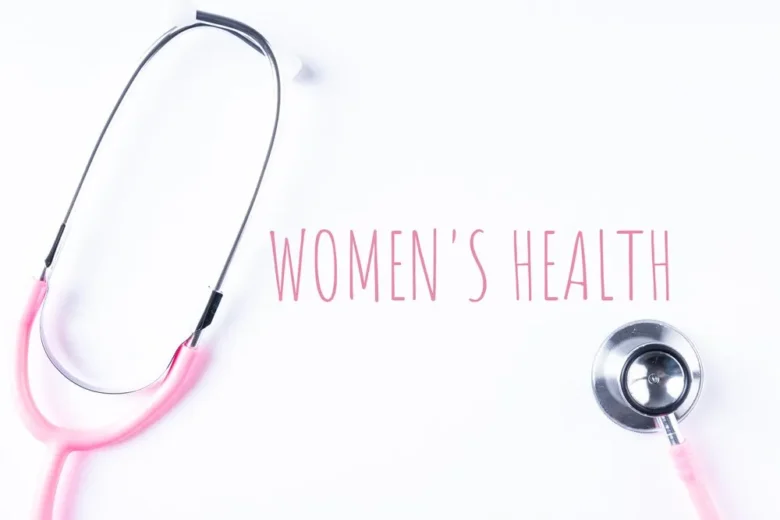A woman’s health needs change dramatically throughout her life, from puberty to menopause and beyond. There is no universally applicable solution. Hormonal changes, reproductive health, bone density, and mental health all require different types of care at different times. To personalize women’s health care, you need to understand their specific needs and tailor your diet, exercise habits, and health care accordingly.
Advances in science now make it possible to create a personalized health plan that takes into account factors such as genetics, environment, and hormonal balance. Whether you’re in your 20s and trying to conceive or in your 50s and going through menopause, a personalized health plan can help you stay healthy and live longer. Let’s talk about how women at every stage of their lives can take charge of their health.
Adolescence: Laying the Foundation for Lifelong Health
The teenage years are an important time to develop good habits that will benefit you throughout your life. Mood, skin, and energy levels are all affected by the hormonal changes of puberty. That’s why it’s so important to eat healthily and exercise regularly. Calcium and vitamin D are particularly important for bone formation, and iron is beneficial for menstruation. Mental health is just as important: learning to manage stress and talking openly about body image can help prevent long-term problems. Personalized health at this stage means that each individual’s issues, such as acne, irregular periods, or anxiety, are treated through lifestyle changes and medical advice.
Reproductive Years: Fertility, Hormonal Balance, and Preventative Care
Sexual health is an important part of women’s health, from their teenage years to their early forties. Monitoring menstrual patterns, improving pregnancy rates, and preventing conditions such as polycystic ovary syndrome (PCOS) or endometriosis are all part of personalized health. Folic acid helps prepare for pregnancy, omega-3 fatty acids help maintain hormonal balance, and probiotics help maintain healthy gut flora. Regular checkups, such as Pap smears and breast exams, are essential for early detection of problems. Fitness programs should take into account the effects of hormonal changes. For example, strength training can boost metabolism, and yoga can relieve stress. Personalized healthcare helps women stay healthy during these exciting years.
Pregnancy and Postpartum: Feeding Mom and Baby
Because every woman’s experience is different, healthcare during pregnancy should be tailored to each woman’s circumstances. Personalized nutrition plans rich in iron, folic acid, and protein, as well as safe modifications to exercise, should be part of prenatal care. Equally important is postpartum recovery, with attention to pelvic floor muscles, mental health, and adequate nutrition. AI-based wearable technology and apps can now help monitor fetal growth and maternal vital signs, providing real-time information. Whether it’s breastfeeding or postpartum grief, personalized postpartum support can make this time easier and healthier.
Perimenopause: Navigating the Transition with Precision
In the years leading up to menopause, hormone levels change unpredictably, which can affect your mood, sleep, and weight. Testing your hormone levels, developing a personalized diet plan (such as taking phytoestrogen and collagen supplements), and engaging in stress-reducing activities like mindfulness are examples of personalized health strategies. Strength training is essential to stop muscle loss, and healthy sleep habits can help alleviate insomnia. Personalized medical approaches, such as hormone replacement therapy (HRT) or natural remedies, can help women better manage their symptoms.
Menopause and Beyond: Health and Longevity First
After menopause, women are more susceptible to osteoporosis, heart disease, and memory loss. Bone density measurements, a heart-healthy diet rich in fiber and antioxidants, and intellectual hobbies like puzzles and socializing are important components of personalized health. Maintaining hormone balance remains important, and medications such as vitamin B12, dehydroepiandrosterone (DHEA), or bioidentical hormones can help. Weight-bearing exercise is good for bone health, and aerobic exercise is good for heart health. Women can receive better care through regular physical exams and genetic testing to slow aging more healthily.
Personalized Mental Health Solutions for All Stages of Life:
Women are twice as likely as men to suffer from depression and anxiety, often due to changes in hormone levels. As they age, women can get community support, and young people can get cognitive behavioral therapy (CBT). New mothers can get cognitive support. Holistic treatment options include nutritional psychiatry (for example, those high in omega-3 fatty acids are beneficial for brain health) and hormone-based therapies. Women can take control of their emotional health by using wearables to track their stress and sleep habits.
The Role of Technology in Personalized Women’s Healthcare:
From menstrual cycle tracking apps to AI-powered menopause coaches, technology is changing the way women receive care. Genetic testing kits can identify people who are at higher risk for breast cancer or who aren’t getting enough vitamins, while telemedicine makes it easier to communicate with experts. Wearables can track everything from bone health to pregnancy, giving doctors the information they need for truly personalized care. In the future, AI will be able to predict health risks and provide solutions before they happen.
Conclusion:
Women need personalized healthcare, not by choice. From the hormonal changes of puberty to the metabolic changes of menopause, every stage of life brings its challenges and opportunities. Regardless of age, women can improve their health through a healthy diet, exercise, and proper healthcare. Thanks to advances in technology, it’s easier than ever to create a personalized health plan. Regardless of your age (16 or 60), the key to staying healthy is understanding and addressing your specific needs. Get started today; you’ll thank yourself later.
FAQs:
1. How is personalized healthcare different from general women’s health advice?
Personalized health plans are tailored to your genetics, lifestyle, and life stage; general counseling doesn’t take this into account.
2. How can women in their 30s and 40s get the most out of nutrition?
Iron, zinc, omega-3 fatty acids, calcium, collagen (to maintain skin and joint health), and magnesium (to relieve stress) are all important.
3. Can personalized health help with severe PMS or PMDD?
Yes! Hormone testing, dietary changes (such as reducing sugar intake), and taking specific medications (such as vitamin B6) can effectively relieve symptoms.
4. Is hormone replacement therapy (HRT) safe for menopausal women?
For many women, the answer is yes, but every woman needs a personalized evaluation by a doctor to weigh the risks (such as blood clots) and benefits (such as pain relief).
5. How can women’s health apps help?
Period trackers, fertility monitors, and AI health coaches can provide women with instant information to help them make informed choices about their bodies.



